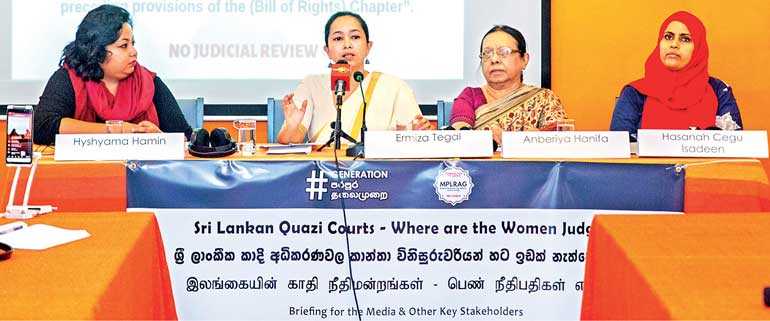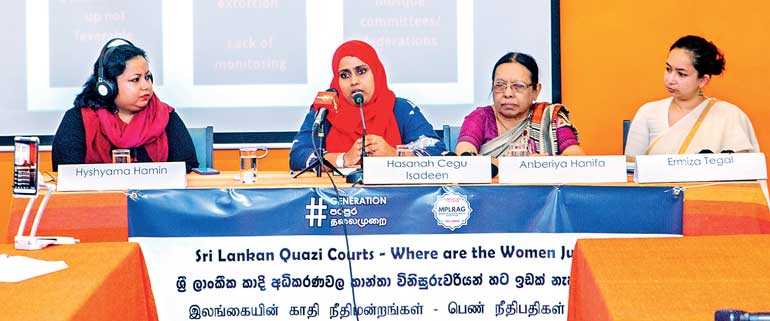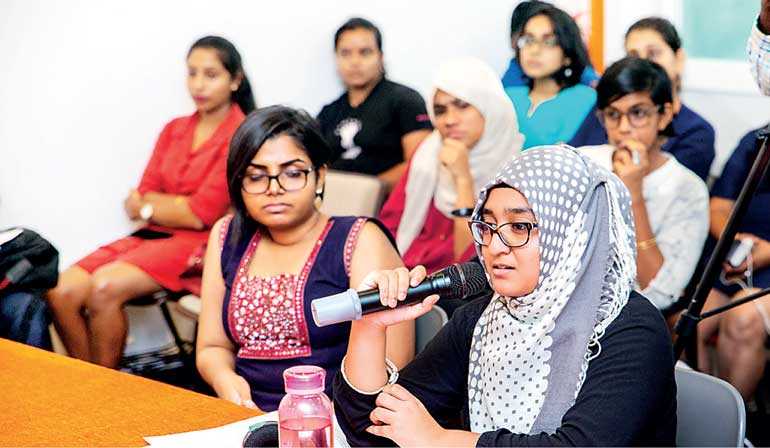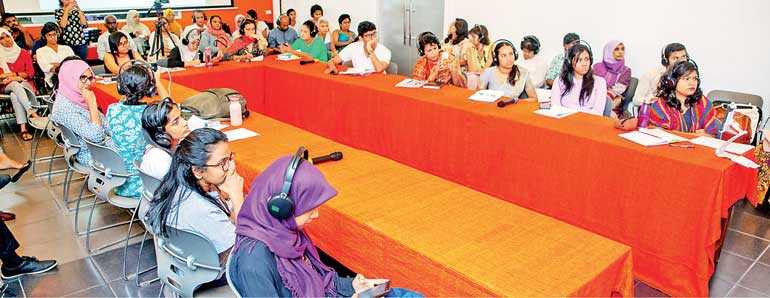Friday Feb 20, 2026
Friday Feb 20, 2026
Monday, 11 November 2019 00:00 - - {{hitsCtrl.values.hits}}



The Muslim Marriage and Divorce Act (1951) of Sri Lanka contains multiple provisions that discriminate against women. One serious discriminatory statement includes explicitly stating that only males can hold the positions of judges in Quazi courts, marriage registrars, jurors and Board of Quazi members.
Muslim women and girls are the primary victims of failure on the part of Sri Lankan lawmakers to ensure comprehensive reform of an archaic and deeply problematic law and court system. Women have also been at the forefront of agitating for reform of the MMDA for over 30 years.
The aftermath of the Easter Sunday attacks witnessed a sudden spike in concern and debate over matters pertaining to the Muslim community in Sri Lanka. The MMDA was among the topics that were brought under public scrutiny where calls for repeal of the MMDA were raised by various factions with varying interests.
In July, Muslim MPs decided on a set of amendments to the MMDA.
In August, the Cabinet approved the proposal to amend the MMDA without properly understanding the nature and extent of reforms being proposed.
MMDA reforms are long overdue.

Given the current political context, the urgency behind politicians’ decisions to submit a proposal for reform to Parliament is predictable. However, while women’s groups were partly relieved to note that calls for reform were finally being heard, it was deeply disappointing that the proposed amendments fell short of addressing the most pressing concerns. We are also very concerned that the approach to reform has since been narrow, arbitrary, and ill conceived.
The problem lies in the fact that the proposal that was finally submitted by Cabinet failed to include crucial reforms that many groups have been calling for, especially: to allow for the appointment of women as Quazi court judges.
This issue has been widely debated in the recent years.
Certain conservative groups, and individuals who support them including prominent lawyers, are of the opinion that women should not be allowed to hold positions of leadership and authority because they are the ‘weaker sex’.
This is due to narrow and highly patriarchal interpretations of Islamic law.
There is ample evidence from Islamic legal tradition that the appointment of women as judges or Quazis does not contradict Islamic teachings based on equality and justice. In fact countries such as Malaysia, Indonesia, Palestine, Egypt, Tunisia, Sudan, Pakistan and Yemen have all amended their laws and reformed their court systems to allow women as judges in Shari’ah and family courts.
Article 12(2) of the Sri Lankan Constitution states that: ‘No citizen shall be discriminated against on grounds of race, religion, language, caste, sex, political opinion, place of birth or any one such grounds’.
Restricting the position of Quazi judge to only males violates fundamental rights of women.
The legal barrier for women to be judges in Quazi courts is an urgent matter of concern for Sri Lanka, as the position of a Quazi judge is a state-funded, state-appointed judicial position under the Ministry of Justice and the Quazi court system is funded by Sri Lankan taxpayers. It is the only ‘official’ judicial position that discriminates on the basis of sex.
Muslim Personal Law Reform Action Group (MPLRAG) has, in the past, cautioned against piecemeal reform which addresses only a few issues; this would render the purpose of reform ineffective and futile as Muslim women will continue to suffer at the hands of a repressive system.
Sri Lanka must stand against all forms of discrimination of women particularly instances clearly based on patriarchal and unjust religious interpretations. Equality for women, and in this instance Muslim women, in law and practice is a priority and national issue of concern.